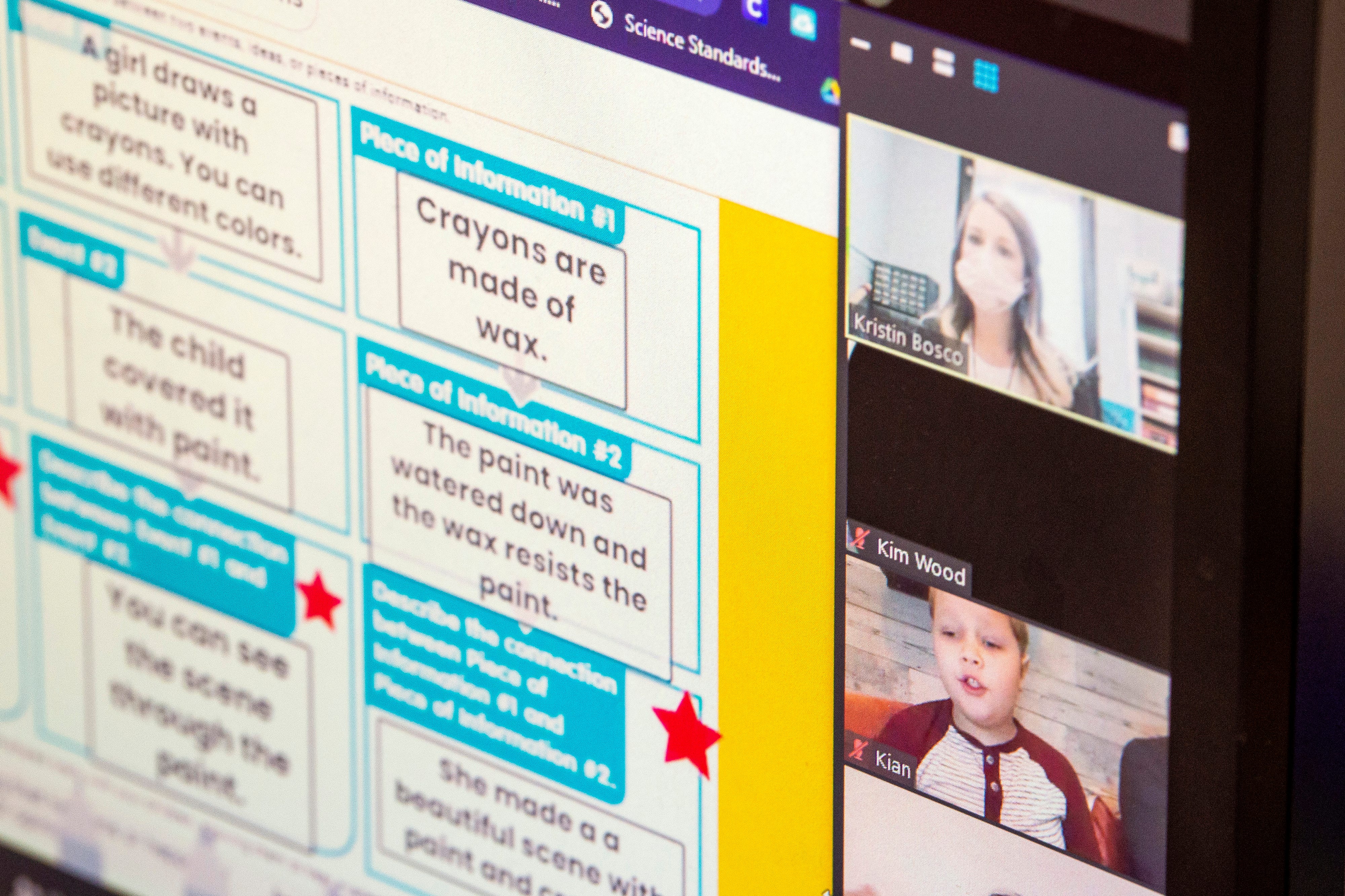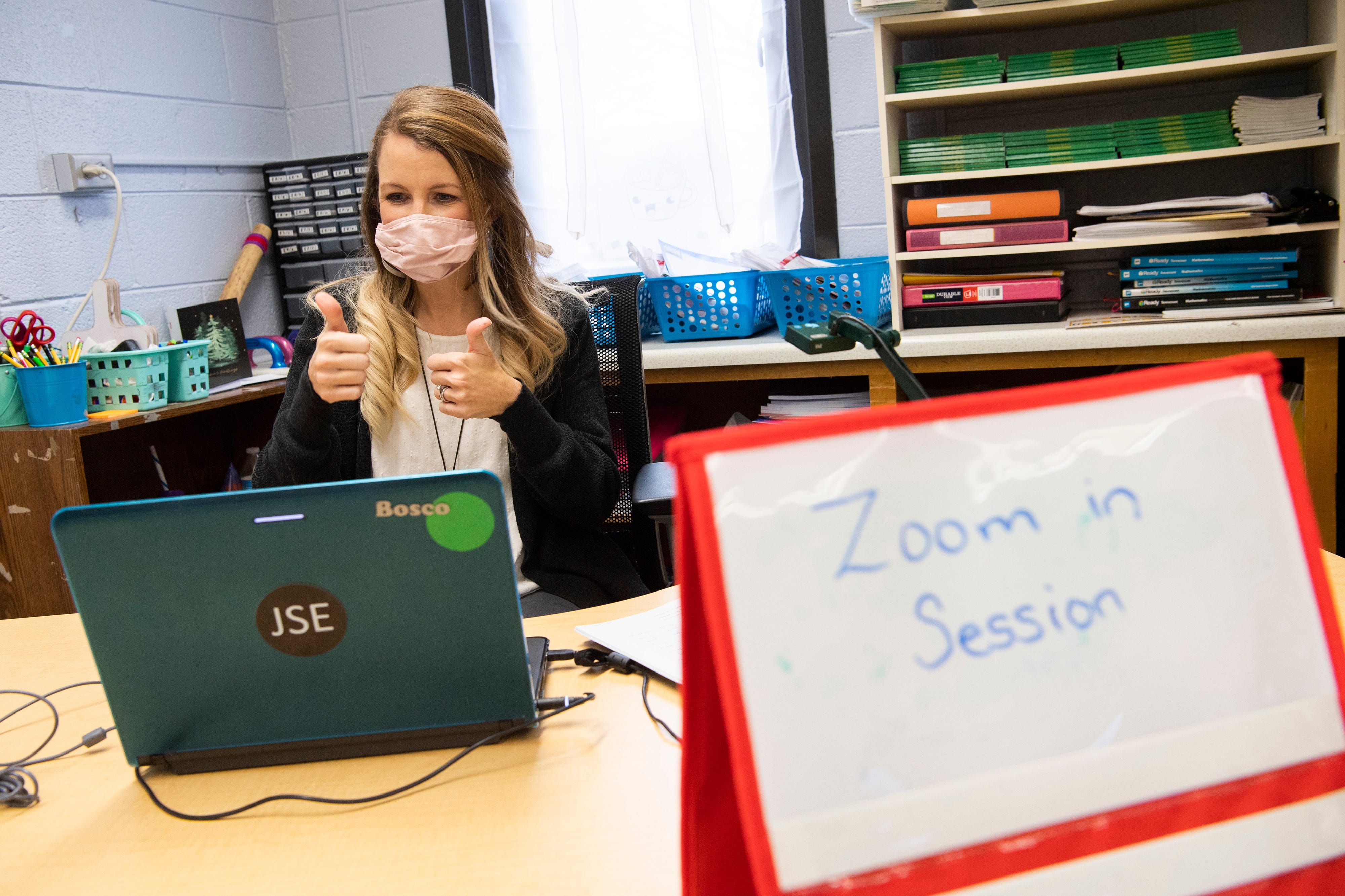
Illustration: Mary Ann Lawrence, U.S.A. TODAY Network
Reading highlights the competitor in 8-year-old Uriah Hargrave. The second-grader at Eaton Park Elementary in Vermilion Parish along Louisiana’s southwest coast was thrilled to go back to in-person knowing in January. Among his preferred things is the Accelerated Reader program in which he wins points for the books he checks out.
” I like to check out since I like to take AR,” Uriah said. “You get more (points and prizes) every time. … The other day I check out a huge ol’ chapter book about animals with kids.”
His points pay off in extra downtime outdoors and “Star Bucks” that he can utilize to buy erasers and spy pens at the school store. Plus, his reading assists advance his class’ gingerbread cutout on the Sweet Land video game bulletin board in the school corridor. He proudly pointed out where his class remained in relation to the other second-grade classes.
Yet a lot of children might be falling behind in the reading video game during the pandemic, teachers and experts say. The USA TODAY Network visited a handful of class in different states to see how schools are adjusting at a time when the teachers’ axiom about trainees discovering to check out in early grades so that they can check out to find out the rest of their lives has actually never ever been put to a greater test.

SCOTT CLAUSE/USA TODAY Network
” Learning to check out is so difficult,” stated Laura Taylor, a professor of educational research studies at Rhodes College in Memphis, Tennessee. “It’s a long procedure that takes years.”
Lost time from when schools shut down, inconsistent schedules since then, the limitations of mentor over video conference or even face to face with masks and social distancing– these handicaps are most likely to have a greater impact on children finding out to check out than those at other grade levels, stated Anjenette Holmes, a teacher at the University of Louisiana at Lafayette’s Picard Center for Child Advancement & Lifelong Learning.
” It’s an additional obstacle for that age group,” she said.
The pandemic’s full impacts on finding out can’t be measured while schools are still handling these fresh difficulties, the experts concede. But early indicators hint at simply just how much ground is being lost throughout the pandemic, specifically among more youthful grades.


First grade instructor Kristin Bosco offers a thumbs approximately her virtual students from her class at John Sevier Elementary in Maryville, Tenn.
Very first grade teacher Kristin Bosco provides a thumbs up to her virtual trainees from her class at John Sevier Elementary in Maryville, Tenn.
School looks different for kids and moms and dads throughout the COVID-19 pandemic
Kindergarteners and their moms and dads discuss what school is like a year into the COVID-19 pandemic.




Lisa Gemar, a third grade language arts teacher at Northside Primary school in Clinton, Miss., monitors her students essentially as they deal with an end-of-the-week evaluation Friday, Jan. 22,2021 Gemar treats her trainees as if they are in the classroom: constructing relationships, upholding responsibility, expecting any problems and working additional with trainees who require it.
Barbara Gauntt/Clarion Journal
At the start of the school year, third grade instructor Lisa Gemar was asked to be among 11 virtual teachers required for children who didn’t want in-person learning at Northside Elementary School in the Clinton, Mississippi, school district. It was a change, but she depended on the challenge.
” The expectations are no different,” Gemar, a 10- year mentor veteran, said of leading a class in a Zoom session. “I’m still able to detect what they’re having problem with and we have actually developed a really fantastic relationship even essentially through a screen.”
Similar to their peers who are discovering in-person, the virtual students take weekly evaluations so teachers can review what locations students need additional work in. Students who need more help satisfy daily with an intervention expert for 30 minutes.
The transition to virtual knowing was relieved by Clinton’s eight-year track record as a one-to-one district, meaning every student gets their own laptop computer or tablet.
In the Madison County School District north of Jackson, Mississippi, some technology issues have actually suggested more trainees require extra intervention, stated Christyl Erickson, the district’s curriculum director.
” Some (students) are returning that were– regrettably, due to the fact that they had no web and even hotspots that we provided did not assist– a few of these kids were packet learners,” Erickson stated. ” Their parents taught them. Now, we did have extremely few of those, however that’s still a gap we have to close for these kids.”
This isn’t a surprise to the professionals, who fear the pandemic will only broaden achievement gaps.
” Understanding what we know about how education inequity works I would believe it’s most likely that we’re going to see bigger spaces in between schools, in between districts, due to the fact that of those various kinds of financial resources,” said Rhodes College’s Taylor. “I hope that our nationwide discussion around that is focused on the different kinds of resources offered to those groups rather than to look at them as individual failings.”
If early readers get the resources in time and attention that they need, UL Lafayette’s Holmes is optimistic they can overcome the pandemic’s challenges.
” Kid are strong and can bounce back rapidly, often a lot faster than grownups,” Holmes stated. ” With consistent routines in place, whether finding out at home or at school, I have hope that they will catch up.”
Early youth education protection at U.S.A. TODAY is made possible in part by a grant from Conserve the Kid. Conserve the Kid does not provide editorial input.
Released.
Upgraded.
No comments:
Post a Comment